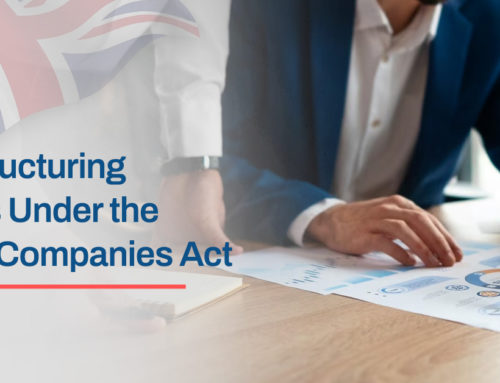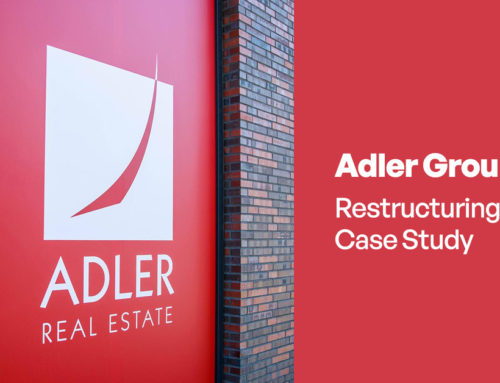Debt is not something new to many corporate businesses; it’s usually manageable. However, the level of debt being held by corporate businesses in the UK is significantly higher than previous years due to the COVID-19 pandemic. A study by The Recapitalisation Group, formed by The City UK, a finance industry body, has suggested that corporate debt taken on since the pandemic hit the UK’s economy is a staggering £35 billion.
Whilst the IMF reports that 62% of businesses have managed to continue trading, albeit at a lower turnover, 42% of businesses are sitting on cash reserves that will last no more than six months. With many City giants predicting that come March 2021 when much of the government-backed loan schemes taken on by businesses is due to be paid back, the final figures could be much worse.
Although optimism is high, particularly among SMEs, boosted by the rise in inflation of 0.6% in June, the reduction in VAT and with interest rates continuing at a record low, there is also the unemployment crisis that’s being predicted the longer the pandemic goes on. Add in a forecasted 2.4% drop in property prices for 2020, predicted to increase to 11.7% in 2021, as well as a potential hit on manufacturing businesses that could be brought about by Brexit, it becomes a heady mix of difficult decisions to make.
Whether you’re one of the businesses that has managed to continue trading, or one that is suffering badly with cash flow, or low cash reserves, now is definitely not the time to sit on your laurels or bury your head in the sand about corporate debt levels. All is definitely not lost. Taking on loans is not always the right option, particularly if there is already a level of debt. However, there are a number of options to consider that will help deal with debt issues.
HM Revenue & Customs
Traditionally, HMRC is one of the first creditors to come knocking on your door if tax and VAT bills aren’t settled. But that’s not to say they don’t have schemes to help, particularly during the coronavirus pandemic. Businesses that are unable to pay mid-year tax bills are allowed to defer payment until January 2021, whilst VAT bills can be deferred until 30th June 2021.
HMRC also have their ‘time to pay’ (TTP) arrangements for businesses which they have extended in order to assist businesses that are struggling with cash flow issues and debt during the coronavirus pandemic. Businesses are allowed to make payment instalments over a short period of time, helping cash flow and enabling the business to continue trading. However, it is unlikely HRMC will accept a payment plan if the debt has arisen due to the solvency of the company.
Government support
Many businesses UK-wide have suffered significantly during the coronavirus pandemic. In response, the Government release a range of measures to support UK businesses, some of which are below:
Coronavirus Job Retention Scheme – the scheme enables businesses to access funding to pay staff. Also known as furloughed workers, all UK employees are eligible and mean businesses can continue to pay staff that would otherwise have been made redundant. Until the end of October 2020, HMRC will pay up to 80% of wages, to a maximum of £2,500 per month. Ongoing, businesses have to pay NIC contributions and pension payments from August, 10% of wages from September, and 20% of wages from October 2020. From 1st July, furlough flexibility was introduced to allow businesses to bring back staff on a part time basis.
Business rates holiday – this was made available for businesses in retail, leisure, hospitality and nurseries for the 2020/21 financial tax year and provides a twelve-month business rates holiday.
Coronavirus Business Interruption Loan Scheme – businesses with an annual turnover of up to £45 million are potentially eligible to apply for funding up to £5 million via the Coronavirus Business Interruption Loan Scheme (CBILS). Launched to support SMEs to provide access to overdrafts and bank lending, the Government gives lenders a guarantee of 80% on each loan.
Bounce Back Loans – businesses can apply for a Bounce Back Loan of up to 25% of their annual turnover, from £2,000 to £50,000, which are interest free and repayment free for the first twelve months. They are 100% guaranteed by the Government.
In addition to these schemes, the Government also offers the Statutory Sick Pay Rebate Scheme for employees who have taken two weeks off due to coronavirus isolation. There are also cash grants of up to £30,000 available for SMEs, depending on rateable values. However, this isn’t applicable for businesses that pay their rent inclusive with the rates.
Invoice financing
Late payments hit SMEs and freelancers far harder than corporate companies. It is an ongoing problem that has impacted many small businesses and freelancers long before the COVID-19 pandemic hit the UK. The Federation of Small Business predicted in January that a staggering 50,000 firms would close due to late payments. Business Debtline backs up this statistic, saying that late payments from customers is the primary reason for 45% of the calls they receive.
In this situation, invoice financing could be a solution. Invoice finance is when a third party, such as an invoice factoring company, will lend money based on the value of the company’s unpaid invoices, usually around 70-90% of the unpaid invoice worth. Once the unpaid invoice has been collected, the factoring company deduct their amount and fees, and return the remainder to the company. Invoice financing is a good way for small businesses to release funds for a business short term to help with cash flow and even business growth.
Asset refinance
Businesses that have a high level of assets, such as machinery, property or stock, and are struggling during the coronavirus pandemic may find that financing their assets will release funds. The assets can be used as a form of collateral for lenders and when used in conjunction with other methods, such as invoice financing, it could help towards funding through difficult trading periods.
Director’s loan
Whilst this option is not something small businesses may consider, for corporate companies it is a viable solution. A director’s loan is where a company’s directors raise the necessary funds privately and subsequently loan these funds to the business. However, there is a high level of risk involved in this form of financing and should not be considered if the company is insolvent.
CVAs and debt management plans
CVAs, or Company Voluntary Arrangements are a potential solution for directors of a company, particularly if the debt crisis is short term or due to the coronavirus pandemic. If the directors believe that the business has a future, and wish to continue trading, setting up a CVA whereby contribution payments are made to an insolvency practitioner (an IP) over an agreed period of time, based on what the company can afford. The IP is bound to distribute these payments to the company’s creditors, usually on a pro rata basis. Once the final payment and distribution has been carried out, the company is discharged from the CVA and is able to continue trading without any liabilities.
Individual Voluntary Arrangements (IVAs)
For many, bankruptcy is potentially looming but this is usually considered a last resort, particularly for the self-employed and partnerships who could end up losing everything. The UK’s Insolvency Service don’t necessarily recommend bankruptcy as an option, and certainly not if your assets are worth far more than your debts.
An IVA could be the better solution. Usually arranged by licensed insolvency practitioners, and where creditors own 75% of your debt, terms can be agreed whereby a monthly, affordable amount is paid over a five year period, although this can be longer. Interest and charges are frozen for the term of the IVA, unless repayments aren’t kept up, allowing creditors to re-impose these fees.
Crowdfunding
Probably not an option considered by many but for businesses that offer products, it could be a potential solution. With platforms such as Crowdfunder and Kickstarter, crowdfunding is now a serious option for many businesses. Crowdfunding, and peer-to-peer funding, work by connecting individual and corporate investors with businesses. Crowdfunding is equity-based and peer-to-peer funding is interest-based; most potential investors will also investigate publicly available records, such as yearly filed accounts. Whilst this is not an option to resolve short term cash flow issues, it could be a viable option for businesses that are looking to source a cash injection for a long term goal, such as product development and launch to market.
Ultimately, if your business is suffering from debt issues, the first step is communication with creditors and to seek professional advice to help you decide on the best options to repay debts. At Leading, our team of skilled, licensed insolvency practitioners are on hand to provide valuable advice and support to businesses of all sizes and type with any debt-related problems. Visit our website Leading UK.






